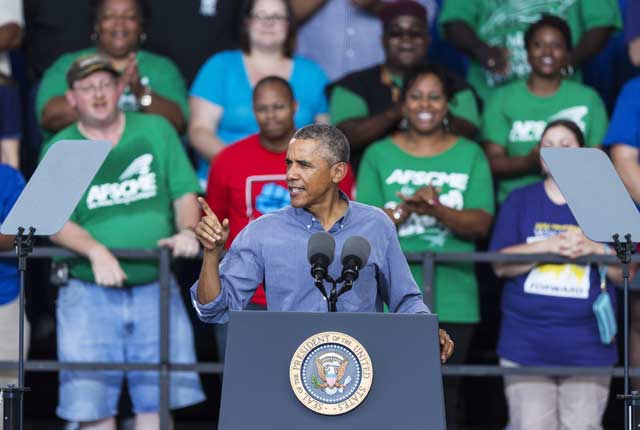It hasn’t been lost on observers that Pres. Obama will announce his executive action on immigration reform tonight, at the same time as the Latin Grammy Awards are getting ready to broadcast live on Univision. As a result, the network is delaying the start of the event in order to carry the speech live. And "chances are high," writes TIME’s Michael Scherer, "that the leading lights of Latin pop will follow up [Obama’s] words with on-stage celebrations of the President’s actions." That’s not serendipity; that’s great marketing.
Less obvious though is the fact that Obama’s executive order is also coming at a time when, in the face of a stalled Congress, municipalities and states are moving on their own to increase the minimum wage. Four Republican states were the latest to capitulate, due to citizens’ ballot demands. And protesting Walmart workers who previously demanded an unspecified "living wage," now demand a $15-an-hour minimum wage–like fast-food workers.
So how do these local, people-powered fights for a higher minimum wage dovetail with Obama’s executive action on immigration reform? The details of Obama’s plan aren’t yet known but NYU economist Daniel Altman and others have argued that increasing the minimum wage requires immigration reform, including bringing undocumented workers into the formal labor force. Secretary of Labor Thomas Perez touted a similar argument in an October speech, linking immigration reform with raising the wage floor for all Americans (or at least, stalling its downward push). But the impact of immigration (and, reform) on wages remains a contested point, certainly among the GOP. Some are considering another government shut down as one response to Obama’s immigration reform.
Look for Obama’s remarks tonight to include making as many as 5 million people eligible for work permits, the AP reports. Morgan Winsor of International Business Times explains the economic impact on states like California, New York, Illinois and Texas in particular.
